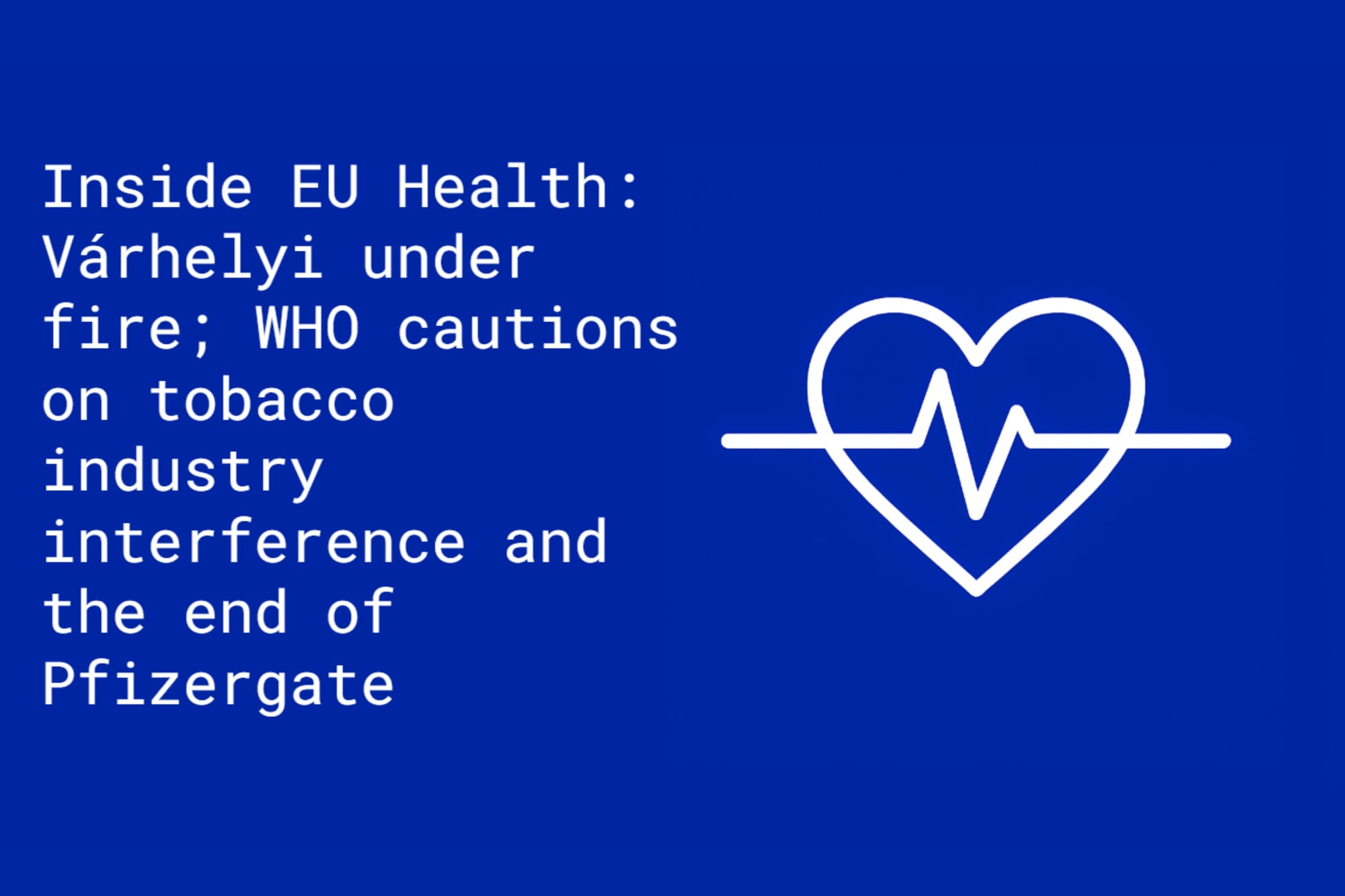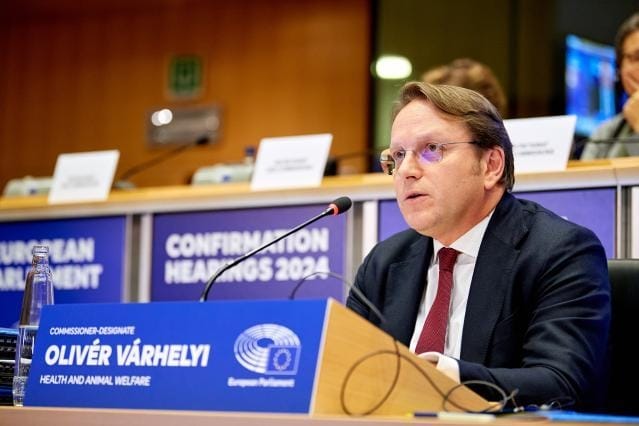Inside EU Health: Várhelyi under fire; WHO cautions on tobacco industry interference and the end of Pfizergate
Várhelyi under fire; WHO cautions on tobacco industry interference and Pfizergate finale as Belgium ends long-running litigation

Várhelyi Under Fire: Calls are mounting in the European Parliament for EU Health Commissioner Olivér Várhelyi to resign or be suspended following allegations that Hungary spied on European Union institutions. The accusations, first reported by several European media outlets, stem from Várhelyi’s time as Hungary’s top diplomat in Brussels. During a tense debate, EU Public Administration Commissioner Piotr Serafin confirmed that an internal probe was underway but stressed the need for confidentiality to preserve the investigation’s integrity.
The Greens/EFA and Renew groups urged the creation of a parliamentary committee of inquiry, while some MEPs, including The Left’s Martin Schirdewan, demanded Várhelyi’s immediate resignation.

Tobacco Industry Interference: The World Health Organization’s tobacco control secretariat has urged governments and the public to stay alert to the tobacco industry’s tactics and misinformation ahead of the 11th Conference of the Parties (COP11) in November.
Independent civil society groups monitoring the tobacco industry’s activities report a range of interference tactics. These include the use of front groups posing as trade or consumer organizations, and the co-opting of science via industry-funded research designed to distort evidence. The industry also employs economic narratives to pressure governments with misleading claims about employment and revenue generated by tobacco.
“Tobacco industry interference is one of the biggest constraints and barriers to the implementation of the Convention,” said Acting Head of the Secretariat of the WHO FCTC, Andrew Black.

Pfizergate finale: Belgian newspaper Le Soir reports that the Belgian Court of Cassation has rejected former lobbyist Frédéric Baldan's appeal, upholding an earlier judgment that his case against the President of the European Commission, Ursula von der Leyen, was inadmissible.
Baldan, who has previously described himself as a specialist in EU–China affairs, filed a criminal complaint in Liège in April 2023, accusing the Commission president of abuse of office, destruction of public documents, and corruption. Baldan’s litigation at one point enjoyed the support of the Hungarian government and the former Polish government.
Early this year, in a separate complaint on access to documents led by the New York Times, the EU Court of Justice’s General Court annulled a Commission decision that refused one of its journalists access to the text messages exchanged between President von der Leyen and the CEO of Pfizer. The Commission claims the texts were not retained.


